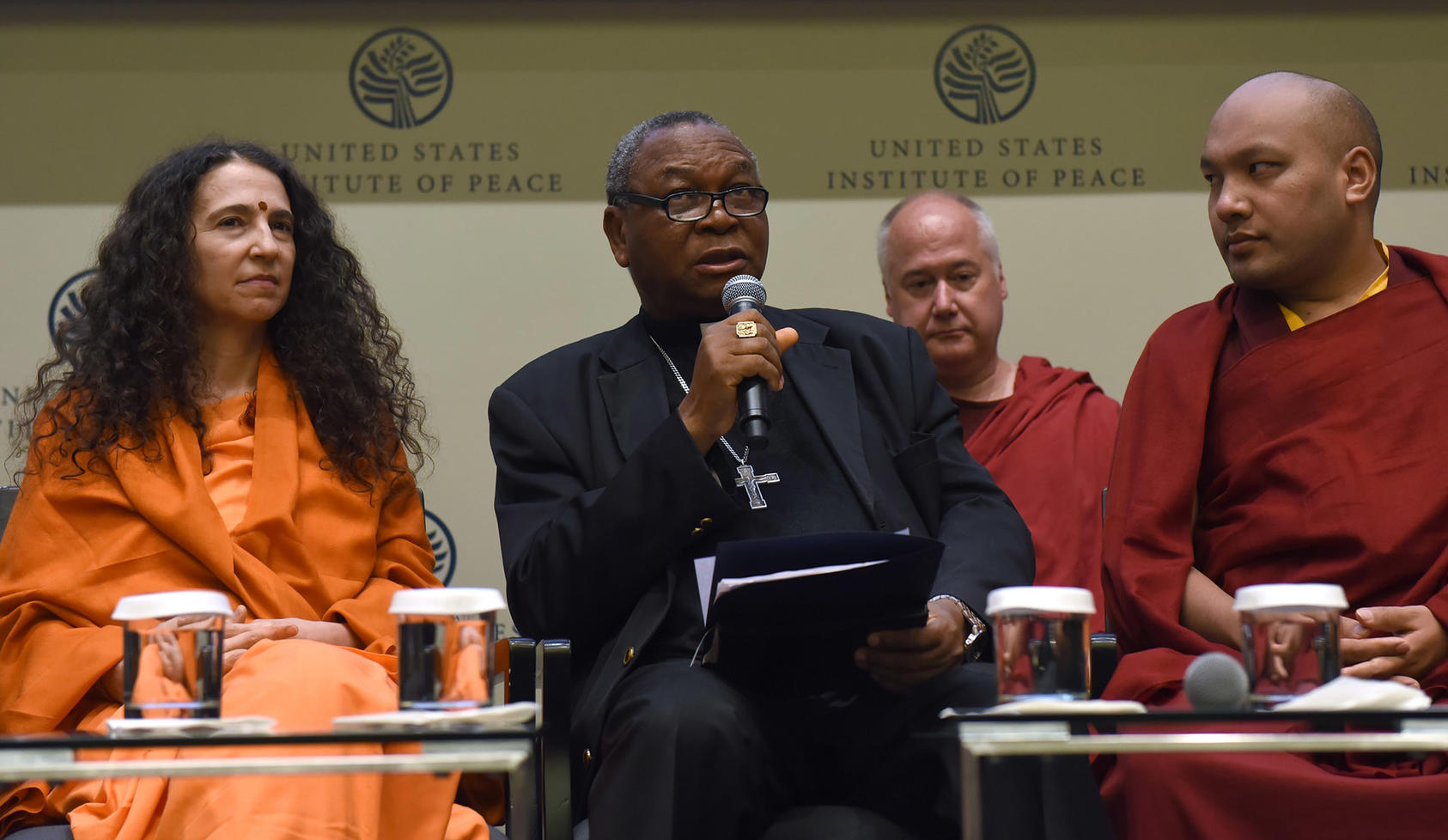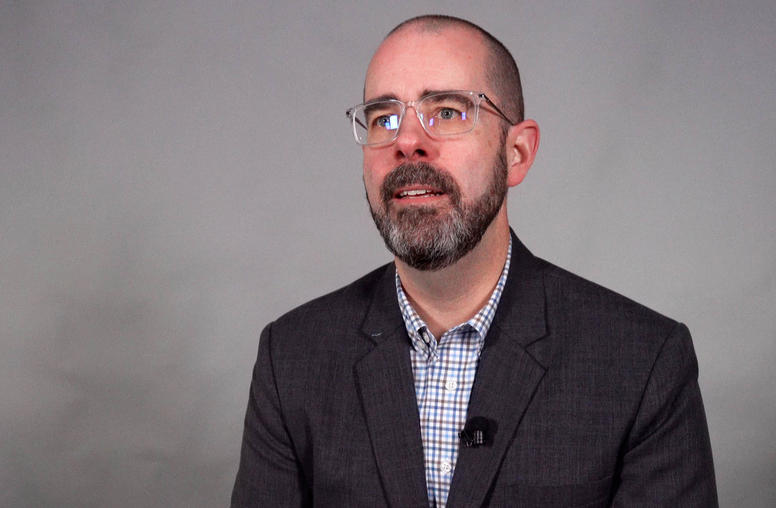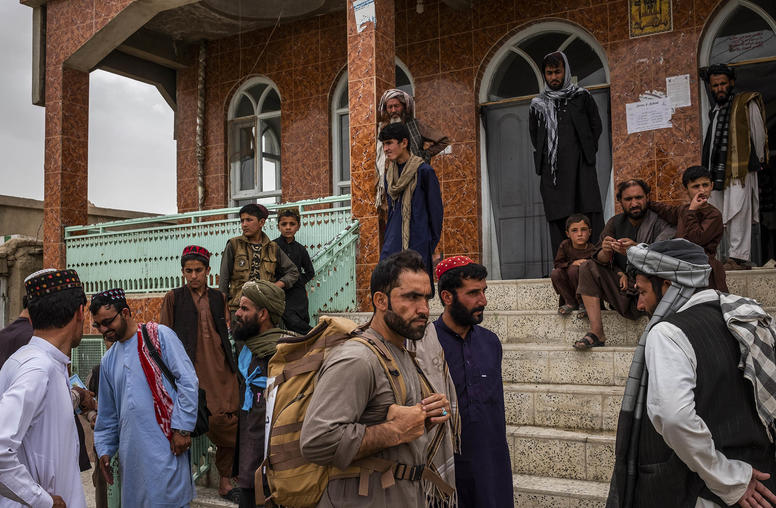To Defend Religious Freedom, Try Peacebuilders’ Strategies
Activists for religious and minority rights should adapt lessons from the art of conflict resolution.
News headlines in recent months report attacks on places of worship in lands as disparate as Northern Ireland, Syria and Ethiopia. Governments and civil society organizations have expressed rising concern over violence and government restrictions against religion—a concern that was visible in July when nearly 1,000 people gathered at a State Department conference to advance religious freedom. At that conference, some discussions offered a useful idea: that activists and governments might better protect religious freedom by borrowing tactics from specialists in conflict resolution.

The Pew Research Center recently documented an increase in government restrictions on religion from 2007 to 2017, as well as most types of social hostility against religious groups—from harassment to violent attacks. It is clear that these constrictions of religious freedom are linked to violent conflicts generally, which also have increased since 2008. In many places, religious prejudice and government restrictions have risen as a response to violent extremism, only to drive further violence and instability. In disparate countries, the religious dimensions of conflict can be both symptoms and drivers of violence, so understanding and addressing those religious elements is critical.
Those who work to reduce conflicts and build peace recognized years ago that peacebuilding required better engagement with religious communities. Over 30 years, USIP increasingly has partnered with religious leaders and institutions to reduce bloodshed in conflicts from Nigeria to Burma to Colombia to Iraq—an experience that offers ideas that are relevant as well to the mission of preserving religious freedom.
During the State Department’s July conference, meeting rooms and corridors across Washington buzzed with debate over how best to protect the “freedom of religion or belief.” That term, used in particular by advocates outside the United States, underscores a commitment to freedom both for adherents of religious faiths and for those—including secularists and atheists—who disavow religion. It underpins the U.S. government’s Potomac Plan of Action, a framework of steps it released at its first Ministerial to Advance Religious Freedom last year, as well as a new guidebook for policymakers worldwide offered this month by the Organization for Security and Cooperation in Europe.
The mission of protecting religious freedom is closely allied to that of building peace. Just as the world of conflict resolution can learn from the particular abilities of, and knowledge within, religious communities, the religious freedom movement can advance its goals by borrowing from the approaches of peacebuilding. Here are four approaches that religious freedom advocates should consider:
Engaging inclusively. Many religious freedom efforts originate within a given religious group—Christians, Muslims or others. As in the peacebuilding world, where USIP works, the most effective campaigns are likely to be those that reach beyond such boundaries. They can strive to include people of faith and of none, civil society leaders, government representatives, and allies from the international community. Campaigns that include multiple religious communities multiply their effectiveness as well by demonstrating that they are defending universal principle, not narrow tribalism. Affirming that principle is particularly important given that, often, religious freedom has been seen by many as a campaign led for and by Christians. In one example from Indonesia, an interfaith group created a broad coalition that included representatives of indigenous traditions to fight for the rights of all. After a 20-year process, in 2018 the Indonesian constitutional court released a decree allowing people of local indigenous traditions to include the name of their tradition on national identity cards, demonstrating the government’s official recognition of indigenous traditions as a religion and giving those people the same rights as other people of faith.
As in the peacebuilding world, advancing religious freedom must be done across gender boundaries. Advocates might consult a USIP guide on how to build gender-inclusive projects for social or political change. Peacebuilding strategies such as these can help ensure that activities to promote religious freedom don’t inadvertently harm the process or the people involved by exacerbating fractures within a society.
Building trust through dialogue. For those advocating for religious freedom, dialogue is a powerful tool. Where governments or other authorities restrict people’s freedom of religious belief, or of unbelief, those centers of power often are acting out of prejudice or fear about other groups. Dialogue can reduce and remove that prejudice and fear. The art and science of peacebuilding has created various types of dialogue processes that can help religious actors build broader coalitions with allies and even safely engage their oppressors. Dialogue can be vital to address sensitive issues related to religious freedom such as conversion, apostasy, and blasphemy. The Vienna-based dialogue center known as KAICIID offers resources for interfaith or intra-faith dialogues. So do USIP’s online micro courses on dialogue and on religious peacebuilding.
In any country or community, a regular dialogue can build understanding and reduce conflicts between governments and societies. At July’s State Department Ministerial to Advance Religious Freedom, U.S. Ambassador Sam Brownback urged governments to convene routine roundtable forums with civil society on religious freedom issues. Particularly in a country where people face violence, threats or oppression over their beliefs around faith, this kind of dialogue requires government assurances of security for all participants.
Promoting resilience by building capacity. Leaders and activists in religious communities, including minority communities, can be trained in conflict resolution. This can help them manage conflict within and between communities before it turns violent. Skills such as mediation and negotiation can be used to prevent or end religious persecution. Resilient, inclusive societies, in which equal rights of all people are recognized regardless of religion or belief, can be promoted from the top down—and through the bottom up, through nonviolent, grassroots campaigns. Religious communities can be trained in nonviolent civic action, which can be combined with advocacy and peacebuilding to achieve social change. USIP recently published a guide to combining peacebuilding with nonviolent action.
As well, the Institute has funneled lessons from conflicts involving religion—from Iraq to Chad to southern Thailand—into a guide for practitioners and activists on how better to seek change where religion has a role in a conflict or dispute. The strategies offered there can be useful to religious freedom advocates as well as to peacebuilders.
Sharing monitoring tools. The peacebuilding field has designed specific early warning systems to signal the rising danger of violence in any community. These also can be used to watch for religious freedom violations. In Nigeria, an interfaith network has trained its members—and even local police—to more quickly recognize violations of religion or belief and to respond collectively to threats against any member of religious and traditional communities. This is especially important where efforts to prevent violent extremism can result in restrictions to religious practice. Training various stakeholders to monitor religious freedom indicators and maintaining a safe responsive mechanism by which to report potential violations is critical to ensuring the respect and protection of religious freedom for all.



